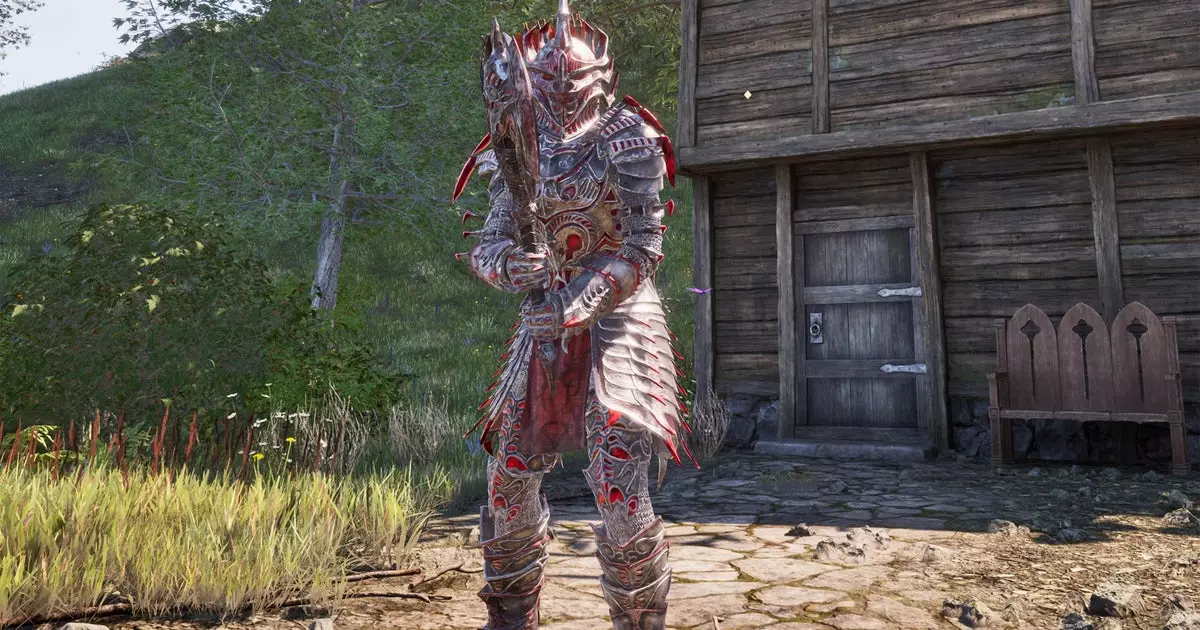In a gaming landscape constantly pushing the boundaries of creativity, “Glory Holes Of Oblivion” serves as yet another provocative contribution to the Elder Scrolls IV: Oblivion Remastered modding community. This daring mod allows players to shoot arrows and cast spells through holes in gates, creating unexpected dynamics during gameplay. While the title may invoke chuckles or raised eyebrows, it beckons players into a far deeper exploration of interactive game mechanics, mirroring the complexities of our society’s engagement with taboo subjects.
Glory Holes Of Oblivion transcends mere novelty; it challenges players to rethink their interactions within a traditionally structured RPG. By implementing features that enable both players and enemies to utilize these openings, the mod integrates an element of surprise while simultaneously heightening the stakes during combat. In a world where conventional boundaries are a staple of the gaming experience, this mod encourages players to navigate conflict innovatively, breaking the mold of traditional RPG combat encounters.
The Gendered Lens of Gaming Culture
The term ‘glory hole’ carries a myriad of connotations, particularly in the LGBTQ+ community, where its usage often intertwines with themes of secrecy and encounters devoid of societal norms. It invites us to ponder the duality of gaming culture – where whimsy coexists with the intersectionality of gender and sexuality. The presence of adult content on platforms such as NexusMods highlights a community embracing sensuality and the decidedly risqué, albeit through a lens that remains accessible to a broader audience.
This acceptance of diverse expressions can be seen as an acknowledgment of the evolving nature of gaming culture. It steers away from the binary definitions of engagement, nudging players to embrace the playful nuances that games offer. Engaging with such a mod not only tests players’ skills but also their willingness to engage with humor and the unconventional, making them question the thematic limitations often imposed by mainstream gaming narratives.
The Etymological Journey
Polishing the surface of the mod’s title reveals a rich etymological journey worth exploring. The moniker ‘glory hole’ originally denoted a cluttered drawer or box, a delightful twist on language that reflects our collective propensity to conflate meanings as society progresses. In attempting to delineate the historical roots of its interpretation, one can’t ignore its evolution into a term encapsulating clandestine meetings in dark corners. The profound implications embedded in this transformation reflect cultural shifts particularly relevant to discussions of sexual orientation and human connection.
Interestingly, research into the term’s origins leads us to the Victorian-era usage, where secrecy and societal judgments dictated behavior—particularly concerning sexuality. Today, while far more progressive, vestiges of these cultural constructs remain embedded in the gaming world. As our society continues to battle against the stigmatization of non-heteronormative identities, a mod like Glory Holes Of Oblivion engages its players at a cultural crossroads, encouraging dialogue surrounding openness and acceptance within digital realms.
A Reflection on Obsolescence and Innovation
The rise of mods like Glory Holes Of Oblivion stands as a stark reminder of the digital age’s propensity for innovation through unorthodox means. While it may be easy to dismiss this mod as trivial or a mere gimmick, it opens the doors to broader discourse about gaming’s role in shaping cultural perceptions. Just as glassblowing and art have evolved, so too has our interaction with virtual worlds—transforming artifacts of past societal morals into playful avenues for engagement.
Indeed, the skeleton within the mod serves as a metaphor for the players themselves, condemned to an endless cycle of inquiry and exploration. This perpetual quest for knowledge, understanding, and sheer amusement encapsulates our human experience within these crafted worlds. By allowing players to shoot arrows through what might be perceived as a metaphorical barrier, the mod highlights both vulnerability and strength—bringing forth a unique freedom to challenge conventions.
Games like Oblivion are no longer mere pastimes; they are breeding grounds for cultural dialogues that transcend the screen. They urge us to engage with our creativity while simultaneously confronting societal norms, allowing us to laugh, reflect, and grow—all while casting spells through some very unconventional glory holes.

